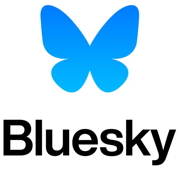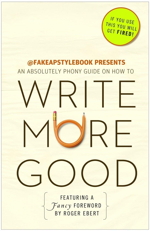Also, I’m still a little mad that the most recent She-Hulk series was yanked just as it was finding an audience again.
Collected Editions dropped this in the comments to Wednesday’s post:
“The new JLA clearly seems to me a miniseries posing as an ongoing, unless it’s a case of ‘we suspect Bryan Hitch won’t write and draw this series forever but we haven’t quite worked out when he’ll stop yet’ kind of thing. You mentioned Superman Unchained as one example, which at least ended when it ended; Batman: The Dark Knight was another one of these, meant as a David Finch vehicle, which unfortunately DC wouldn’t kill long after it had died and so it lumbered around eating brains for a while after the fact. I’d as soon that kind of thing not happen again.
As a retailer, do you find that there is some benefit in this miniseries fakery, in that customers are more likely to buy something they think is an ongoing series than a miniseries? I’d think DC could put Bryan Hitch’s name on a Justice League miniseries, let it be known that the story is generally in-continuity-ish, and get the same effect as releasing it as a series (and maybe save themselves some bad blood with customers), but maybe I’m wrong and that wouldn’t sell as well.”
I think there is some level of consumer decision-making based on…necessity, maybe? Like a JLA mini-series, even if marketed as being heavily tied to continuity, wouldn’t “count” as much as an ongoing series, and thus wouldn’t attract as many readers? Or would it go the other way, with readers more inclined to pick up a mini-series, because they know there’s an eventual end to it and they’re not committing to another indefinitely-lengthed ongoing. I don’t know.
It’s especially hard to gauge orders nowadays, with series stopping and restarting at the drop of a hat. I think the Big Two companies are teaching the customer base that everything is more or less a mini-series, and it’s getting harder to determine which series may be likely to gain reader support or which series will get the response of “eh, why bother, it’s not going to be around very long anyway.” How many of the new series launching after Secret Wars are going to be around more than a year before being retooled again, for example? How many of the new ongoings DC is currently in the midst of launching are going to be around next summer? (Not a criticism of those titles in the slightest…just the realities of a difficult market.)
The days of ordering heavily on the early issues for years-long back issue demand on a potentially long-running series is over. It used to be that we would order assuming a certain measure of back issue sales over a certain period of time, and that’s no longer the case. Once a series is done, and replaced with a new series, if it’s replaced at all, the back issue sales for that series will drop down to nearly nothin’. We can’t order assuming long time health of a series and its building an audience. We have to order based on “who will buy it RIGHT NOW.” Sure, maybe a few extra for those folks who may miss a month here and there, but deep-stocking a comic because you think it’ll still be around five years from now and people will still want those issues…probably not going to happen.
…This is perhaps going a little far afield from what you asked, Collected Editions, so let me try to pull it back together. This new Justice League of America series is tied to DC’s current push of new comics that aren’t explicitly tied to In-Continuity World Building, that are more focused on doing their own things via the creators’ individual visions. You still have the other Justice League title if you want your DC Universe tie-ins, but this new book isn’t explicitly referencing outside continuity beyond featuring the current versions of the JLA members. It’s a cool looking book, with a Big Name and a specific hook (“massive widescreen action”) and it’s a first issue of a Justice League title, so I ordered a little more than I would have of, say, some random issue of a Green Lantern ongoing. But I went into it thinking:
1. The purpose of the book is to feature this creator.
2. My assumption is that book will continue to be written and drawn by this creator for about a year.
3. Once the creator is off the book, it’s either canceled or assigned a new team who doesn’t attract the same attention as the original artist.
4. People looking for the early issues will peter off about six months from now, as a hardcover or paperback edition approaches, so order extras accordingly.
Now the comic has been on the shelf for a whole two days, so I don’t know what the actual sales on this will be for me…so far, it’s doing well, but I can’t tell if I’m going to sell through most of the copies, or if I’m going to get stuck with some. I’ll find out as the month progresses, and I’ll figure out how to order on future issues. I do have folks asking me if it’s an ongoing series, and my honest reply is “as far as I know, yes,” since my assumption in #2 above is just my retailer sense tingling. But in this particular case, I don’t think it makes any difference, at least on the customer’s part, if it’s a mini or not. They don’t need to worry about rack sales or back issue sales or any of that stuff I have to lose my luxurious blond mane of hair over. They just have to worry about “will this comic give me my money’s worth” (in this case, $5.99 — yikes) and it looks like, for a lot of my customers, the answer is “yes.” It doesn’t have to be around forever, with an unchanged creative team, to be enjoyed right at this very moment.
Anyway, that’s a convoluted answer to your simple question, C.E. — well, at least, I assume an answer is in there somewhere!








I’m totally with you on She-Hulk :(
“$5.99 — yikes”
YIKES is right!
“She-Hulk”
cancelled ALREADY? well, w/o Dan Slott this time, I’d stopped buying it a few months in!